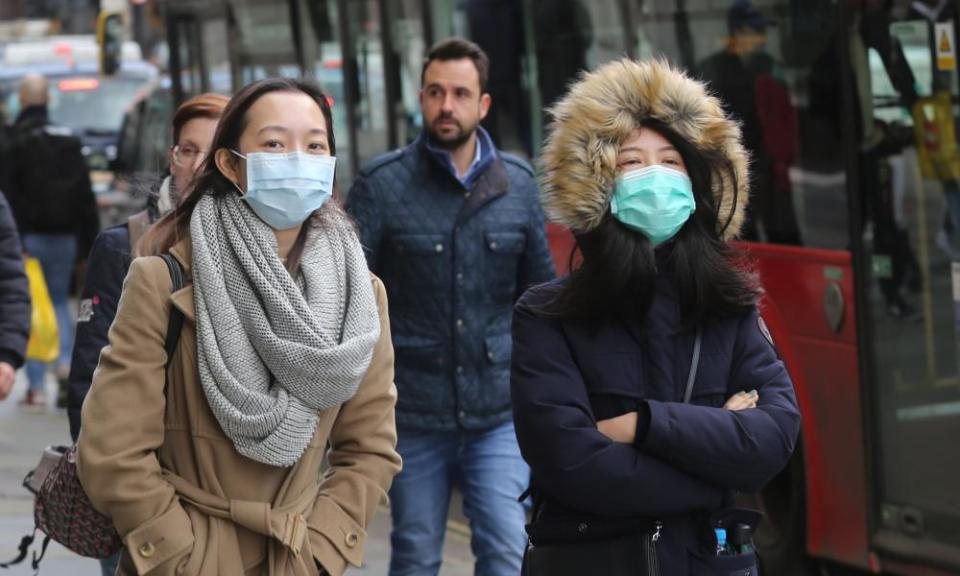UK coronavirus cases rise to 19 as fears of global crisis grow

The number of confirmed coronavirus cases in the UK has increased in the past 24 hours to 19, including the first reported in Wales, as it was announced Boris Johnson is to chair a meeting of the emergency Cobra committee.
The three cases confirmed on Friday came within a day of three other positive tests for the Covid-19 virus, including the first case in Northern Ireland.
A Downing Street spokesman said the Cobra meeting would take place on Monday “to ensure that everything that can be done is being done”.
Public Health Wales said medics were trying to trace people who had been in close contact with a woman who has become the first Welsh person to contract the virus. She had visited northern Italy, Europe’s worst-hit area, where there have been 15 deaths and 650 confirmed cases.
People who sat within two plane rows of the infected person from Northern Ireland on a flight from northern Italy to Dublin have been contacted, health authorities said.
Prof Chris Whitty, England’s chief medical officer, said two new patients in England had caught the virus in Iran and were being treated at a specialist unit at the Royal Free hospital in London.
On Thursday, Whitty said sports events and concerts may have to be cancelled and schools closed for more than two months if the UK is hit by a global pandemic.
The British cyclists Chris Froome and Mark Cavendish are among riders who will be tested for the virus after the UAE Tour was cancelled when two participants contracted Covid-19.
The World Health Organization is recommending that people take simple precautions to reduce exposure to and transmission of the Wuhan coronavirus, for which there is no specific cure or vaccine.
The UN agency advises people to:
Frequently wash their hands with an alcohol-based hand rub or warm water and soap
Cover their mouth and nose with a flexed elbow or tissue when sneezing or coughing
Avoid close contact with anyone who has a fever or cough
Seek early medical help if they have a fever, cough and difficulty breathing, and share their travel history with healthcare providers
Avoid direct, unprotected contact with live animals and surfaces in contact with animals when visiting live markets in affected areas
Avoid eating raw or undercooked animal products and exercise care when handling raw meat, milk or animal organs to avoid cross-contamination with uncooked foods.
Despite a surge in sales of face masks in the aftermath of the outbreak of the coronavirus outbreak, experts are divided over whether they can prevent transmission and infection. There is some evidence to suggest that masks can help prevent hand-to-mouth transmissions, given the large number of times people touch their faces. The consensus appears to be that wearing a mask can limit – but not eliminate – the risks, provided they are used correctly.
On Friday, the Swiss government banned large events of more than 1,000 people. The Geneva motor show has been postponed by six months.
Facebook cancelled its annual F8 developer conference in San Jose, California, because of concerns about the outbreak.
Fears about the spread of the virus continued to cause havoc on the global stock markets. The FTSE 100 index of the biggest UK-listed companies has hit its lowest level since December 2008.
The budget airline easyJet said it would be cancelling flights as a result of the continued spread of coronavirus. It said the move would particularly affect flights into and out of Italy and it would adapt its timetables to best support demand.
Tourists who have been quarantined at a hotel in Tenerife have been told by an airline they must be tested for coronavirus or wait to come home.
Jet2 has told guests at the H10 Costa Adeje Palace that they will not be flown home before 10 March unless they have tested negative for the virus.

 Yahoo News
Yahoo News 